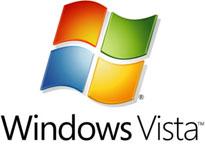Windows Vista - How to Pick the Right Edition?
 It used to be easy to select an operating system but it is not the case any more. With Windows Vista, Microsoft has unleashed five different editions, each of which targets a specific group of users. Get the wrong edition of Vista, and you’ll end up wishing you were back with XP or opening your wallet again for the version you should have purchased in the first place. The good news is that it’s pretty easy to learn which version of Vista is right for you and it might not even be the one that costs the most.
It used to be easy to select an operating system but it is not the case any more. With Windows Vista, Microsoft has unleashed five different editions, each of which targets a specific group of users. Get the wrong edition of Vista, and you’ll end up wishing you were back with XP or opening your wallet again for the version you should have purchased in the first place. The good news is that it’s pretty easy to learn which version of Vista is right for you and it might not even be the one that costs the most.
Vista Home Basic
The Home Basic version of Vista is the one probably no one wants, yet those purchasing low-priced new computers with the idea that getting Vista will be part of the bargain may not be able to avoid it.
That’s because Home Basic is designed to run on hardware that might not otherwise be able to support full-featured versions of Vista. So the first thing that Home Basic dispenses with is the signature Aero interface - the headline feature that arguably makes Vista what it is.
Without Aero, Home Basic lacks the snazzy, semi-transparent windows of other versions of Vista, in addition to plenty of other visual niceties that come with Aero. Home Basic also lacks Windows Media Centre, which is essential for juggling a variety of multimedia tasks.
Home Basic does have the improved search capabilities, improved security, and updated hardware support, but much of what Home Basic offers can already be provided by XP and some decent add-on utilities.
If you’re buying a new computer in hopes of getting Windows Vista in the deal, it would be worth your while to pay up for a better version of Vista or else purchase a PC that already comes with an upgraded version.
Vista Home Premium
If you’ll never need to connect to your office’s computer network, either directly or over the Internet, Vista Home Premium is a safe bet.
This version of Vista has everything that Microsoft considers essential to the savvy, mobile home user. First, home Premium sports the Aero interface in all its glory.
A Mobility Centre, useful for those on the go, makes it easy to quickly disconnect from wireless networking, conserve energy by changing power settings and display brightness, and more.
And the Vista Sync Centre is geared toward those who need to synch up multiple devices to their PCs - everything from PDAs to mobile music devices.
What it lacks for those who need office connectivity is the essential remote desktop function.
Vista Business
Vista Business may be the best version of Vista for those who want a no-nonsense, get-the-work-done operating system.
Vista Business dispenses with the entertainment-oriented features and accompanying overhead of other versions of Vista - including Media Centre - and focuses instead on giving business users the productivity tools they need. Chief among these is remote desktop, which allows you to steer your office computer from afar, so long as you can connect to it via the Internet. Remote desktop was available in XP Pro, but Vista also adds some vital tools that help businesses protect their data and improve connectivity.
A built-in diagnostics tool in Vista Business can actually predict hard drive failure, for example, and warn a user when an impending hardware problem could result in data loss.
Vista Business also has strong support for handwriting recognition and tablet PCs.
Vista Ultimate
If you want it all - Aero, entertainment, Media Centre, and business-friendly features - then you want Vista Ultimate. Windows Vista is not forgiving of hardware, but with its target group being enthusiast computer users who delve as deeply into games as they do into business meetings, it’s expected that top-end hardware will be on hand.
What Vista Ultimate adds that other versions leave out is sophisticated data protection. The BitBlocker technology built in to Vista can encrypt an entire Vista disk, preventing unauthorised access from both other users and malicious programs downloaded from the Internet.
Ultimate also include Ultimate Extras, a collection of utilities available only to owners of the Ultimate edition.
Vista Enterprise
This version of Vista, not sold at the retail level, is clearly aimed at large corporations. Essentially an enhanced version of Vista Business, Enterprise includes support for Unix-based applications as well as tools that beef up backward-compatibility with older applications.
You can look at the many versions of Vista as unnecessarily confusing or as a banquet of plenty. However you see them, choosing the right version of Vista the first time will save you money and let you concentrate on what matters: using your PC.